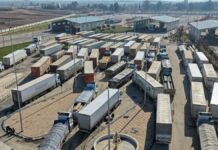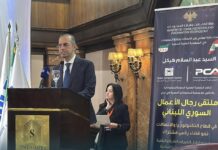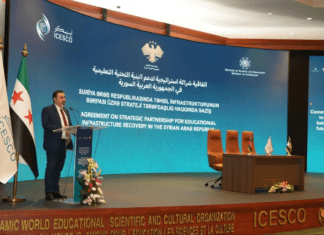
Northern Syria’s Idlib province, administered by the Syrian Salvation Government (SSG), has become a refuge for thousands of Syrians and Lebanese fleeing Israel’s ongoing military operations in Lebanon. While the region is already strained by years of war, local authorities are trying to provide shelter and resources to the new arrivals.
The Aoun Al-Dadat crossing, located near the city of Jarablus, remains one of the few functioning gateways for displaced families entering liberated northern Syria. The crossing has seen a steady flow of refugees from Lebanon, despite sporadic closures due to tensions between the Syrian Interim Government (SIG), which controls Jarablus, and the Syrian Democratic Forces (SDF), which control neighboring Manbij.
“We’ve worked hard to ensure these families can cross safely,” said an SIG spokesperson. “Civil status teams are stationed at the crossing to help refugees obtain identification documents, which allows them to move freely and access services in our areas.”
Once inside liberated territories, many refugees are transported to camps like those in Marat Misrin, under SSG administration. “We were lucky to find a place here,” said Khaled Masoud, who fled from Lebanon with his family. “The camps are crowded, but we are safe.”
Humanitarian groups such as Syrian Civil Defense, also known as the White Helmets have been actively involved in assisting the refugees, especially those in need of medical care. White Helmets teams have transported individuals from the crossing to local hospitals, treating cases ranging from childbirth to injuries sustained during the journey.
However, living conditions remain harsh in these camps. Overcrowding, limited access to clean water, and food shortages have become significant challenges as the population in Idlib swells to over 4.5 million people. Aid organizations warn that without increased international support, the region’s fragile infrastructure may collapse under the weight of the growing crisis.
Still, for many refugees, life in SSG-administered northern Syria offers a degree of freedom and safety that they could not find elsewhere. The area remains under the control of the revolution and is free from the oppressive Assad regime.
“Despite the challenges, we feel we can rebuild our lives here,” said Masoud. “It’s not easy, but it’s better than what we left behind.”








